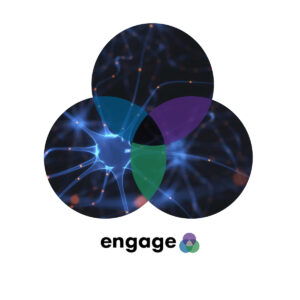Introduction
Resilience refers to a person’s ability to bounce back from setbacks and recover from challenging situations. Mindset is a key factor in building resilience, which contributes to mental, emotional and physical wellbeing. A positive, open, confident mindset, enables a person to be resourceful in the face of adversity and build resilience to cope more effectively with setbacks.
What is Resilience?
According to the Oxford English Dictionary, ‘resilience is the capacity to withstand or to recover quickly from difficulties; or, the ability to spring back into shape’
The Components of Resilience
There are a number of characteristics that define resilience which can manifest in different ways for different people and may show up in different combinations. It is useful to explore how these components may present in reality.
Adaptability and Flexibility
Adaptability and flexibility are important factors when building resilience. A resilient individual is more likely to adapt when faced with difficult circumstances than someone who is less resilient. It is this ability to be flexible and adapt during adversity that can differentiate the outcome.
Adapting to setbacks involves being resourceful and being able to demonstrate a more flexible approach to how a situation is dealt with. When someone is less resilient they can often respond in a more rigid, inflexible way. This can heighten the discomfort and prolong the effects making it harder to achieve an effective outcome.
Emotional Regulation
Emotional regulation involves regulating and managing emotions. Someone who is resilient is more likely to be able to manage their emotional response to a difficult situation effectively than someone with low resilience.
A resilient person’s response to a setback will be more balanced, and they will be able to regulate and adjust their emotions quicker in a more controlled way. In contrast, when a person’s resilience is lower, they are more likely to struggle to regulate and manage their emotions during setbacks.
In these circumstances, their reactions are likely to be exaggerated, more extreme, distorted and often disproportionate to the event. Learning to regulate our emotional response during setbacks is an important factor in building resilience which can be achieved by developing the right mindset.
Problem Solving Skills
Faced with a setback, someone who is resilient is more likely to be creative in how they solve problems. They will be more open and receptive to new ideas and more likely to ‘think outside the box’ and be imaginative. Whereas, someone with lower levels of resilience is more likely to get stuck in their thinking and be less creative when it comes to solving problems.
Solving problems and finding solutions when dealing with setbacks requires an open mindset, which helps build resilience.
Self-awareness
Self-awareness is almost a cornerstone and foundational component when it comes to building resilience. With self-awareness a person has insight into their own responses and reactions in dealing with different situations, including setbacks. Interestingly though, a person may be resilient but not necessarily have a high level of self-awareness.
However, building self-awareness will be an important factor for those seeking to build resilience. The person who is self-aware has more opportunity to recognise and understand when their response to a situation is constructive and helpful and when it is detrimental to the desired outcome and result. With self-awareness comes choice. We can choose a different response to the setback.
The Benefits of Resilience
There are many benefits associated with having a resilient mindset, here are a few to consider.
Stress Management
With a resilient mindset, a person is more likely to manage stress more effectively. Stress will exhibit itself differently for each person, however, with resilience, this brings coping mechanisms that facilitate a more constructive response to setbacks and stress. A person with a resilient mindset is more likely to feel resourceful and able to deal with pressure, cope with uncertainty, and be open to finding solutions. This will equip them to adapt and bounce back from setbacks and pressure.
Better Coping with Challenges
Additionally, those with a resilient mindset are likely to cope better with challenges. Challenges are seen as something to conquer, overcome or embrace, rather than feel defeated by them. People with a resilient mindset are likely to be more positive, receptive and resourceful in dealing with challenges.
Developing Resilience
Here are some things to consider when developing resilience.
Embrace Failure as a Learning Opportunity
Learning to embrace failures and mistakes and to see these as opportunities to learn is an important step towards developing resilience. Approaching situations with a learner, or growth mindset, involves reflection and considering the pros and cons of an experience and considering how things can be improved in the future.
In contrast, when we don’t embrace failure, we are more likely to feel defeated by a situation and miss the opportunity to learn something, which can undermine resilience.
Optimism in Challenging Times
It can also be helpful to stay optimistic during challenging times. This will help build resilience and maintain levels of positivity.
Break Down Problems & Strategise Solutions
Additionally, learning to break problems down into more manageable parts and building a strategy around the solution can be very helpful in building resilience. This approach creates clear action steps and brings clarity and focus, which brings a feeling of control.
Conclusion
In conclusion, when a person approaches difficult situations and challenges with a resilient mindset, they are more likely to be adaptable, be creative in finding solutions and to bounce back from setbacks. Staying optimistic and positive, and embracing failures as opportunities to learn are also important. Developing these skills are important when building a resilient mindset.
If you’re looking to further develop your mindset, be sure to check out our mindset course.
If you’re potentially looking for a career change into coaching, be sure to explore our coaching accreditation course.
Frequently Asked Questions (FAQs)
What is resilience?
Resilience refers to a person’s ability to adapt and bounce back from a setback.
Can resilience be developed over time?
Yes, with effort and focus resilience can be developed and strengthened over time, with some simple mindset changes.
What role does self-awareness play in resilience?
The more self-aware someone is, the more likely they are to recognise when their response to a setback is constructive, or holding them back from getting a desired result.
What are some practical ways to improve emotional regulation?
When faced with challenges and setbacks, it can be helpful to learn how to regulate your emotional response. This involves taking time to pause and reflect, allow space and time for emotion to calm, stay objective when appraising the situation, and try not to distort or exaggerate things.
How can resilience be beneficial in professional settings?
People with a resilient mindset are more likely to respond positively and constructively to challenges in the workplace. They are more likely to adapt and be resourceful in finding solutions and be focused on getting a positive outcome.
About the Author
Dr Jodi O’Dell
Jodi is the founder and driving force behind Engage. She is an occupational psychologist and executive coach with a PhD in Coaching Psychology, who for over 20 years has dedicated her career to helping people thrive and be the best version of themselves.
As a leading expert in coaching, she has worked globally with blue chip clients. She combines this wealth of experience and passion for human development with the scientific rigour of evidence-based research which underpins the Engage toolset.



